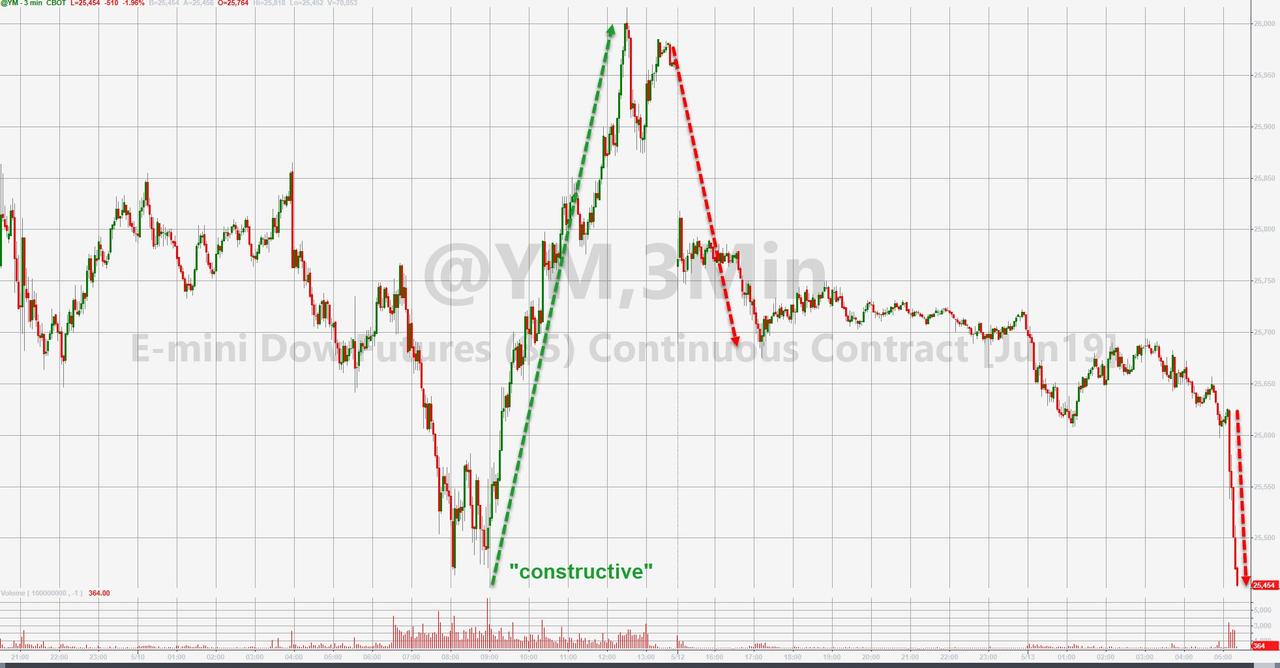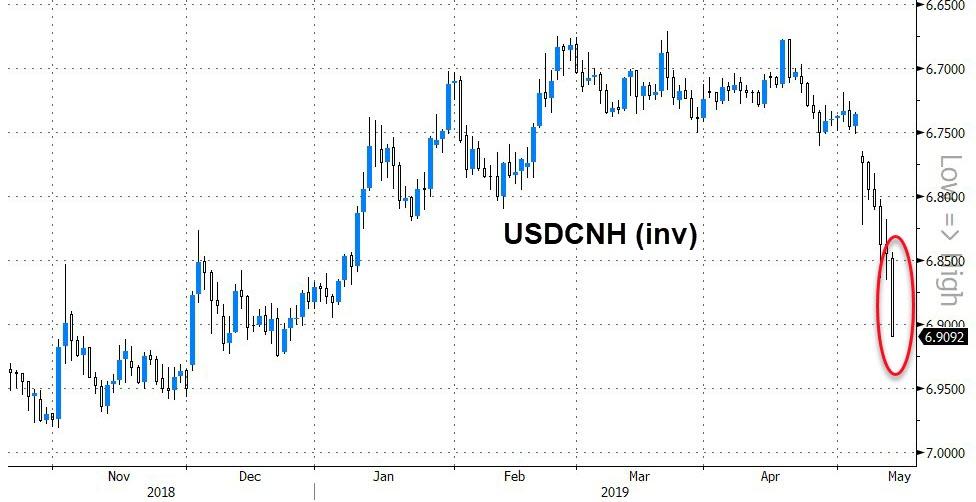Via Bloomberg’s Richard Breslow,
How To Claim Victory In A Lose-Lose Situation
Buy the rumor sell the fact. It’s the second time in a week, I’ve used that annoyingly misunderstood phrase. The previous time, it was in the context of wondering which side of the equation referred to what part of the news. This time, it refers to the belief being expressed all over the place this morning that nothing is as bad as it sounds because we’ll always have climb downs and central banks. It’s a horribly dangerous way of assuming how the world works in the long-run.
The trade talks faltered. Equity markets have indeed sold off. The S&P 500 future has fallen to levels not seen since midday this past Friday. The Shanghai Composite acted just the same. Lots of ink has been spilled on the notion that it isn’t going to be so bad. After all, it is already Monday and not a single company went bankrupt over the weekend as a result. The parking lot of The Mall at Short Hills was reported to have been bustling.
It’s a mistake to view the entire world through the lens of a few stock market indexes and declare a measured truce has been achieved, pending the inevitable peace agreement. It reminds me of how shares traded in late 2007. Although back then it was based on the misguided and naive notion that if you just went back to plain vanilla assets and avoided that mortgage stuff everything would be fine. Never was the concept of ring-fencing more misunderstood.
Today is worse. We should know better, but there has been a full capitulation to the belief that governments will be able to indefinitely clean up their messes with a quickie liquidity injection. It isn’t even controversial anymore. Apply this lotion as needed.
And we continue to not wonder why there is so much talk about even more extreme ways to implement monetary policy… as needed!
Meanwhile, with great relief we celebrate equity resiliency taking comfort in the supposed Fed put while thinking nothing about a bunch of Fed speakers suddenly getting religion over the dangers associated with income and wealth inequality. A problem that will be at the center of the national debate through the 2020 election campaign. The trickle-down wealth concept was the very foundation upon which quantitative easing was justified. They mentioned it, wrote a paper purporting to have discovered the concept, and therefore are no longer responsible for having propagated it. That is how victors write history.
It was like watching a production of “My Fair Lady” when I read, “Why can’t equities act like the ‘poised’ currency markets and take this all in stride?” In fact, foreign exchange markets aren’t ignoring what is going on. They are trying to do their best imitation of pointing thumbs-down to all of the above. And that only looks like indifference against some of the dollar’s more obvious counterparts. But there are leaks. The Korean won got hammered yet again. The MSCI emerging currency index has now fallen convincingly through support. Traders are awakening to the fact that the SNB might like a weak franc but that this particular currency exists for a reason. And USD/CNH made a new year-to-date high a few hours ago.
Global bond yields are falling. Suddenly, some of the targets for how low Chinese rates can go don’t look nearly so aggressive.
German 10-year yields below zero are making a lot more sense as not being an aberration. But the most interesting market to watch this week is Treasuries. Tens haven’t had a yield this low since April 1. Whether there is an appetite for them sub-2.40% will tell a lot about the global appetite for the U.S. as a safe haven. It’s difficult to know what to wish for.
via ZeroHedge News http://bit.ly/2VyTLsO Tyler Durden

